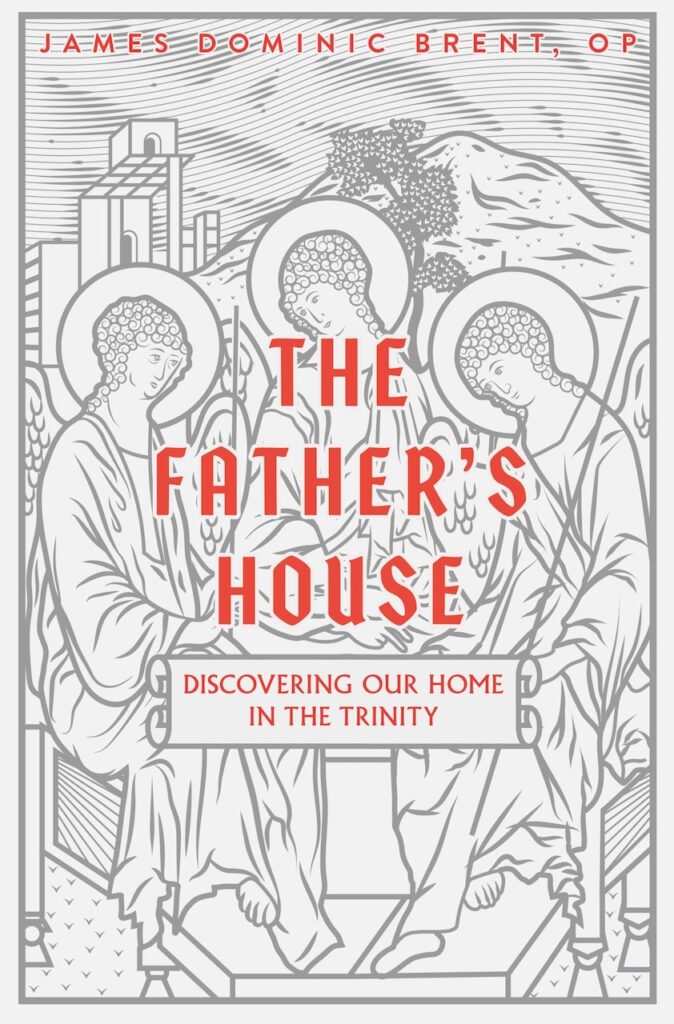“The Father’s House: Discovering Our Home in the Trinity”
Father James Dominic Brent, OP, Pauline Books and Media (2023)
176 pages, $21.95
At some point or another, most Christians have worn or at least seen a bracelet made up of beads that hold the letters “WWJD,” meaning, “What would Jesus do?” It is intended to give Christians a pause before they make decisions or get involved in something that is opposed to their values. The idea is that Christians are supposed to live like Jesus, being merciful to all those they meet, avoiding sin and spreading joy.
In Dominican Father James Dominic Brent’s newest book, “The Father’s House,” the author takes this idea one step further. Living like Jesus, meaning living a moral life, is a good goal, but it does not fully encapsulate what it means to be a disciple. Through baptism, Father Brent says, Christians have received the in-dwelling of the Holy Trinity. As incarnate beings, this means that we are not striving just to become “like” Jesus, but to actually become Jesus himself, through the abundant grace that God gives us.
This idea is theologically complex and may seem like a shock to some. To be clear, Father Brent is not saying that any of us is the second coming of Jesus. No, what he is saying is that the natural end of being human beings made in the image and likeness of God means that ultimately once we are purged of our sinfulness, with the Holy Trinity living in us, then the Holy Spirit forms us into Christ.
But what does it mean to be formed into Christ? It means that we are living in constant dialogue with the Father and the Holy Spirit in a relationship of total love. It means that we see our brothers and sisters as God the Father sees them, as souls who are sick and in need of a divine physician, but who are also destined to be the home of the Holy Trinity. All of our actions are united to those of Jesus Christ, who exists outside of time, so that we can complete “what is lacking in Christ’s afflictions,” contributing in a very real way to the salvation of souls (Col. 1:24).
Father Brent places a great emphasis on the reality of our baptism as the moment when we are first drawn into the life of the Holy Trinity. This is perhaps the book’s greatest contribution to the modern disciple’s understanding of her life in Christ — our baptism is not merely symbolic, not simply a rite of passage or a celebration of membership in an earthly community. No, when we are baptized, like with all of the sacraments, something really happens. We are actually changed. And the change that takes place, according to Father Brent, is that we become Jesus.
No one always surrenders to the movements of the Holy Spirit living within them, however, and so there is always a need for repentance. Repentance, Father Brent writes, is not just sorrow for past sins, but also a resolve to avoid sin in the future. With each movement of repentance that we experience, Christ is formed more and more clearly in us.
The natural result of the Holy Spirit forming Christ in us is that people encounter Jesus when they encounter us individually as Christians. This is a reality that, if every Christian took it to heart, would quite literally change the world.
In a culture where many lament that Christianity has been watered down, “The Father’s House” serves as a radical reminder that the truth of Christianity is not revealed through culture wars and front page stories, but through the simple lives of people who have welcomed the Holy Trinity to dwell within their hearts and who have courageously set out to allow others to encounter Jesus through them.

